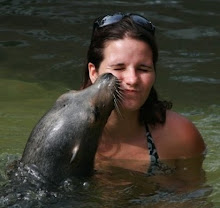Human Diversity reflection 7
Rites of passages are important because its people’s beliefs, its how your family brought you up, and it is what makes you who you are today. Rites of passages aren’t discriminated between what’s right and what’s wrong, just like believing in your own religion isn’t right or wrong. Your belief is what you stand by, its how you were brought up, and the only way you know when you are young. Rites of passages don’t only happen in your religion or culture; it also comes up in society. A rite of passage is a memorable event, which will forever change you as a person. Whether its getting your high school to diploma, tell getting married, these are rites of passages. Can you label these rites of passages wrong or right?
If not, then you shouldn’t be able to label Facing Mt Kenya, Sitting Quietly, and the Sambia rites of passages as wrong or right. In Facing Mt Kenya they discuss that their rites of passage doesn’t begin with male circum session like we are use to. Instead this task is design for young girls. It is a painful process for young ladies, they go through a surgical procedure were they cut the nerve were the woman gets all the pleasure from sex. This is rites of passage that every girl has to go through, the ancestors take special privilege in working on the procedure to make sure things are done, right. This isn’t that the girls have the surgery and get it over with; it takes time to prepare the girls to have this surgery, putting them on diets. They also have a celebration for the girls who make it through the surgery, and they have a healing process for the young ladies. As for sitting quietly this rites of passage is primarily towards the young men in the village. These boys have to go through fierce training; no I’m not talking military. They are training to be fearless, and stand up for themselves, because no one is always going to be around to help you out. Men are suppose to be fearless and are suppose to be tough, to concur any mission that lies ahead of them, with courage and capability to be a leader, their own leader. During these rites of passage, they don’t only torture the boys; they also torture the boy’s mothers. It’s okay to see your boy go in a child and come out a man, but would you feel differently if your boy came in and never came back out? As for the Sambia article, this rite of passage affects both young woman and young men. The women are given such power within their bodies that they couldn’t even dream of, and of course don’t know how to use these powers for good. They are brought up that woman are used for house chores, sex, marriage, and baby making, in the words of today, a house wife. Were as the men don’t have the power at their feet, they have to constantly be working for their power, they have to be the man of the house, constantly bringing home the money, bringing home food, and be build into a strong and brave man who can defend his family as well as his village. This is not only what makes a man and a woman, but this creates the future and generations to come.
The rite of passages is related to formal education because education isn’t something that you just grow up knowing. It isn’t implanted in your brain by birth, and your parents tell you to run off and go figure out the world with it. Education is about learning, step by step and day by day. We aren’t only learning how to read, write, solve solutions, and blow things up. But we are learning why the world goes round, and how we are apart of this world. What makes us significant in this world? I believe that the rite of passage is part of the education, what characterizes who we want to be, and how we can contribute to society. That’s all education is, learning more about us, and what we like. So at a certain place and time, when were ready, we have to go out there and show society what were made of, and what we can contribute to it, give back to it, what it gave us.
Wednesday, January 20, 2010
Subscribe to:
Post Comments (Atom)

No comments:
Post a Comment